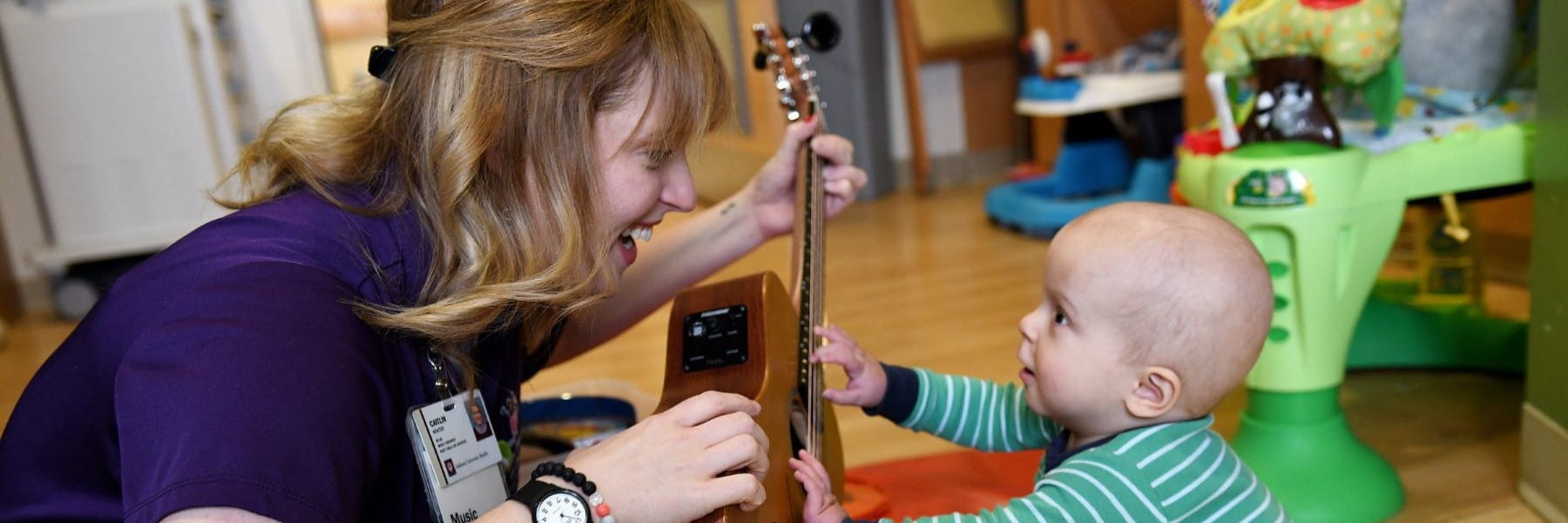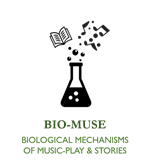Active Music Engagement (AME) is a theoretically grounded music therapy intervention developed for young children (ages 3-8 years of age) and their parents. The program uses interactive music-play to counteract stressful qualities of pediatric cancer treatment and reduce the interrelated distress experienced by young children and their parents.
AME involves both the parent and child, with sessions delivered by a credentialed music therapist. Therapists use collaborative decision-making and tailor the music-play experience to meet the in-the-moment needs of the parent and child. Music-play kits and educational materials also encourage independent use of music-play to manage stressful experiences beyond therapist-led sessions.







